In celebration of Pride 2023 in Australia, the shelves of two Aesop stores in Sydney and Melbourne have been stocked with 45 titles by LGBTQIA+ authors to cherish, share and discuss. Guided by the recommendations of Aesop’s in-house bibliophiles and partner bookstores, visitors are invited to collect a complimentary volume of their choice, with no purchase required. Encompassing a diverse range of writers, the library reveals how queer literature has evolved to reflect the myriad experiences within the community.
The Aesop Queer Library
Amplifying queer voices
Founded on a belief in the transformative power of queer storytelling—its ability to broaden minds, embolden individuals and unite the community and its allies—the Aesop Queer Library returns to Australia at Aesop Collins Street in Melbourne from 1-8 February and Aesop Sydney from 22 February to 1 March, offering complimentary books by LGBTQIA+ authors.
Due to an overwhelmingly positive response, the Aesop Sydney Queer Library finished on 28 February. We apologise for the inconvenience.
The reading list
As was the case with the 2022 edition, the selection of 45 titles is made up of books purchased from queer independent bookstores Hares & Hyenas in Melbourne and The Bookshop in Sydney, as well as Allen & Unwin and Penguin Random House. The collection spans a wide range of genres and a multitude of voices, including Shelley Parker-Chan’s much-celebrated debut historical fantasy novel She Who Became the Sun, Nevo Zisin’s guide-meets-memoir The Pronoun Lowdown and Claire G.Coleman’s Enclave, a powerful dystopian allegory. Below, these writers share their thoughts on the impact of queer storytelling and how such narratives have shaped their lives.
Omar Sakr
Omar Sakr is a bisexual poet and writer born in Western Sydney to Lebanese and Turkish Muslim migrants. In Son of Sin he explores the impact of migration, racism, gender biases and homophobia on the lives of Western Sydney families, and the younger generations attempting to navigate circumstances beyond their control. Sakr is also the author of These Wild Houses and The Lost Arabs, with which he became the first Arab-Australian Muslim to win the prestigious Prime Minister’s Literary Award in 2020.
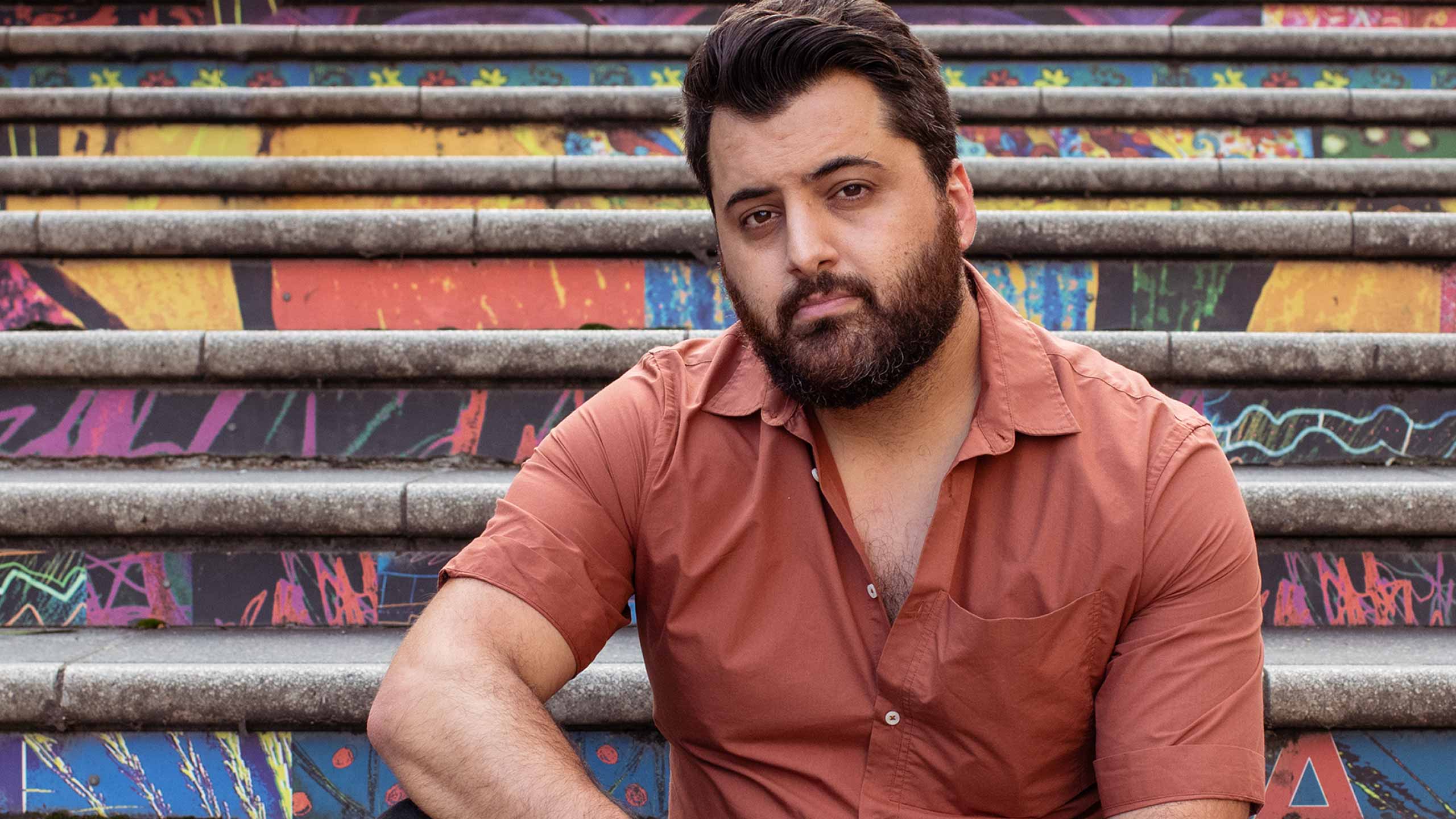
Why are stories of difference so important?
Stories are important, period. Who gets to tell them, to elevate or critique them? I’m a queer Arab Muslim, and I’ve been subjected to so many negative and hateful public narratives about my communities, my identity, which have shaped my daily life, how I’m seen, how I’m read, whether I get a call back for a job or approved for a loan, etc.; for me, writing is a means of resistance and reclamation. I’ll show you how things really are, not from a position of judgment but of love.
What has been your journey to self-acceptance?
I wonder about this language, to be honest. The self is always accepted, the struggle is getting through external impositions put upon you by your loved ones, and society. It’s taken a long time to get through to my loved ones, and to let go of those who have shown they can’t love me, but doing so has made bearing the external pressure from society so much easier. Forget about acceptance, focus on love habibis, and you will be okay. Why did you agree to participate in the Aesop Queer Library and what role can it help play in uplifting underrepresented voices?
Speaking about societal pressures, anti-LGBTQIA rhetoric is getting worse in so many ways, despite some superficial gains in popular culture. As we come closer to mass violence driven by extreme inequalities and climate catastrophes, the status quo is increasingly leaning on old bigotries to try to keep us distracted and divided, peddling tired lies and easy hate. I’m honestly unsure how much we can do as individual creators against established power, but I know we must remain committed to telling our truths, to showcasing our complex humanities, to resisting hatred and apathy in every capacity we can; initiatives like this are so essential to helping us do so, to promoting love and art, and making it accessible to those who need it the most. I’m really honoured to have my work included here amongst so many fabulous writers.
Nevo Zisin
Woven together with Nevo Zisin’s own pronoun journey, The Pronoun Lowdown sheds light on the complicated history of gender around the world, in language and across time. Part memoir, part manual, it is filled with ideas for how young trans and gender-diverse people might begin to navigate their identities, as well as suggestions for how family and friends might provide support; its pages also salute the tireless work of other LGBTQIA+ trailblazers and activists. Author of the award-winning Finding Nevo, Zisin is also one of Australia’s few transgender marriage celebrants and runs gender inclusivity workshops.
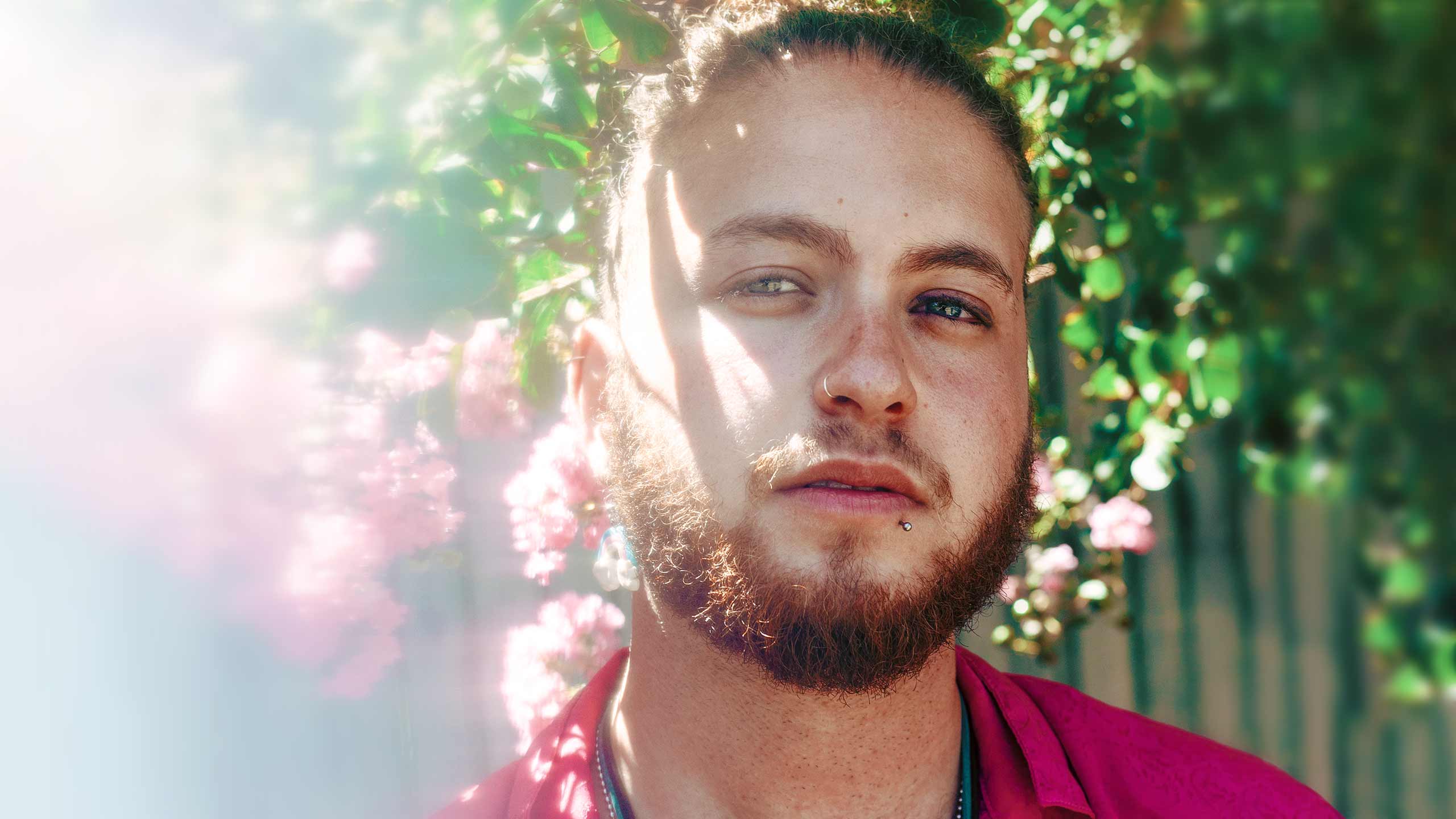
Our relationships with ourselves can be vast and ever-changing—tell us about yours.
I think in a way, it is when I have tried to find complete certainty in myself, that I have lost myself, not created space for fluidity or new incarnations. I think we fetishise certainty—not asking for help, getting trapped in black-and-white thinking, terrified that if we welcome nuance it will unravel the very foundations on which we have built our lives. I’ve stopped trying to fully ‘figure myself out’ but rather strive to meet myself in each moment with curiosity and wonderment. Sometimes when we put a definitive label on ourselves it can sour from our liberation and become our cage. I want to keep the doors open for the magic of my essence beyond what can be encapsulated through language.
What role have queer spaces played in your life?
Queer spaces have not only saved my life but they have made my life worth living. When I say queer spaces, I don’t just mean queer venues or events, I mean the bedrooms of my loved ones, I mean overgrown sharehouse backyards, I mean hot river days, my favourite queer space Pony Club Gym, even the sacredness (and sometimes destruction) of online spaces. Queer spaces have taught me that who I am, is not something to be tolerated or accepted. Who I am is divine and I am worthy of being witnessed in my fullness without having to explain or justify myself.
How has being trans affected your perspective on wider society?
Being trans has offered me a lens of magic and possibility. Trans people have the audacity, despite so many obstacles, to imagine something better for ourselves, and in doing so, imagine more possibilities and liberation from gender shackles for everyone. By becoming more awake and alive to who I really am at my core, I am better able to see people for who they truly are, allowing myself to love more fully and be loved more fully in return. Being trans is the greatest gift I have ever received.
Claire G.Coleman
Claire G. Coleman is a Noongar writer and poet, author of the critically acclaimed Terra Nullius. In the tradition of Margaret Atwood and Naomi Alderman, her novel Enclave explores a future of surveillance, disruption and segregation that echoes the horrors of a colonial past. It is a powerful dystopian allegory that confronts the ugly realities of racism, homophobia, greed and privilege, as well as the self-destructive distortions that occur when we ignore our shared humanity. Coleman gave the Loris Williams Memorial Lecture at the 2018 Australian Society of Archivists conference and her essay ‘After the Grog War’ was shortlisted for the 2018 Horne Prize, while another, ‘Hidden in Plain Sight’, was shortlisted for the 2019 Horne Prize.
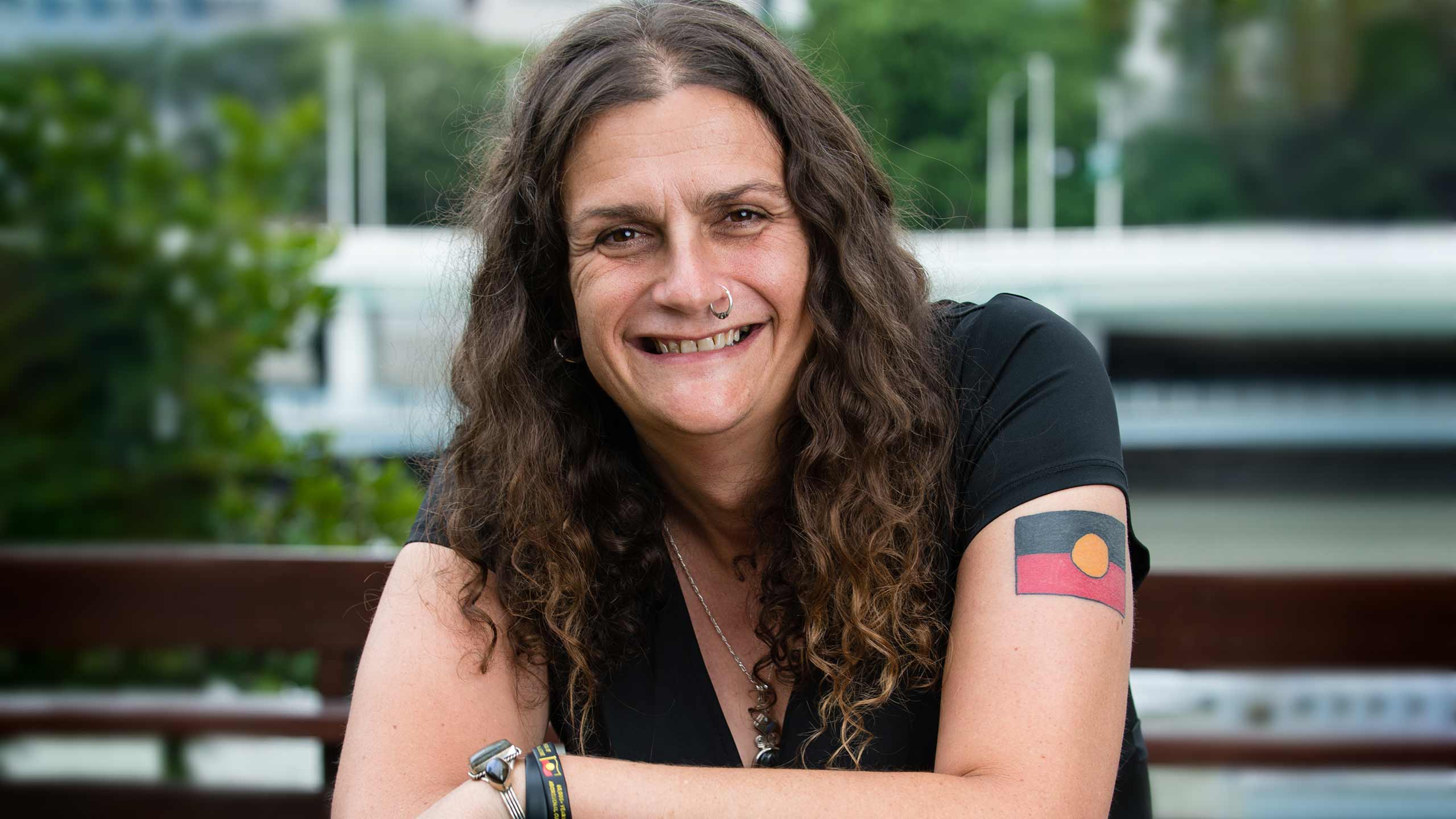
What inspired your book, Enclave, which is featured in the Aesop Queer Library?
Over the last few years, I have observed, as many of us have, increasing polarisation in our society’s views of diversity. Hatreds that I considered to be dying off, like homophobia, racism and transphobia, have been on the rise. The lead-up to the marriage equality plebiscite, for example, was used by some as an opportunity to weaponise hate for political means. I thought to myself, what would society look like if the hateful people separated themselves off from the rest of the world. Enclave was the result.
What power do the arts hold for queer people?
Art has always been one of the few industries in which queer people are welcome and have an opportunity to thrive. I have never experienced prejudice from within the artist community, and outsiders trying to impose their beliefs on artists tend to face a united front against prejudice. We can use that welcomeness, that community, the power of the art made by queer artists within the broader arts framework, to fight for equality and to make even more people welcome.
What questions would you like your work to provoke in the minds of your readers?
Do I fear difference, and if I do what can I do to learn to love people different to myself? Why hate when you can love? Where do I belong? Am I the sort of person who would live in a closed community or am I the sort of person who would fight for others to be included? Can I forgive, can I love without reservations?
Shelley Parker-Chan
Published in 2021, Shelley Parker-Chan’s debut historical fantasy novel She Who Became the Sun was a number one Sunday Times bestseller and has been translated into 12 languages. Set in an alternate China, it is a fantastical, gender-queer retelling of the founding of the Ming dynasty by Zhu Yuanzhang. An Asian-Australian former international development adviser who worked on human rights, gender equality and LGBTQ+ rights in Southeast Asia, Parker-Chan is a winner of the British Fantasy Awards for Best Fantasy Novel and Best Newcomer.
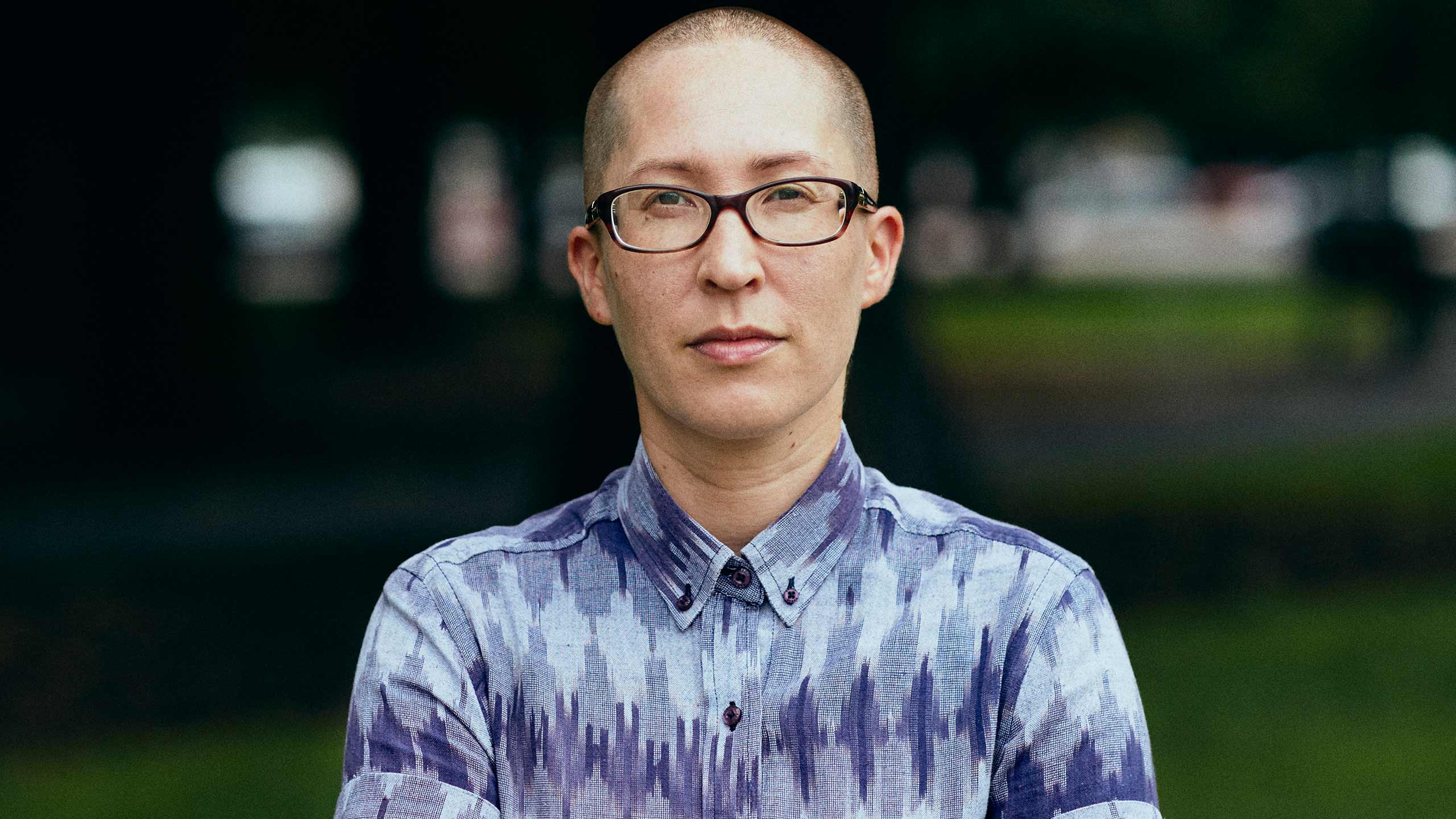
What power is held in the sharing of queer stories?
For so long queer people were written out of history. Even later, when we were finally allowed to exist on the page, it was only as flattened versions of ourselves that told a story the straight world wanted to hear. Now, by writing our own stories, we can write ourselves into the past, and the future. We can make places for ourselves where we were never allowed to be. We can create worlds in which we can see ourselves and be ourselves. We can finally give ourselves the hope and joy, the love and the happy endings, that nobody thought we deserved.
Who has been a powerful or inspirational queer writer for you?
Andrea Long Chu once wrote that the defining quality of transness is not identity, but desire. Trans people want so deeply. It’s knowing that you may not ever get what you want—it’s the feeling that perhaps you shouldn’t even want what you want—and yet how can you stop yourself from wanting it? But to dare want, to risk disappointment: isn’t that the pinnacle of being human? Isn’t it beautiful?
How have you explored the intersectionality of your identity?
For me, being diaspora comes with a built-in ambivalence. On one hand, there’s love for my culture, and the feeling that I have to preserve it—defend it—against a hostile white majority. But on the other hand, aspects of that culture reject who I am. Reimagining the history of my family’s sourceland—imperial China—is my attempt to grapple with the exclusionary elements of the history and culture that’s been bequeathed to me. What if what had been handed down had been different? What if I didn’t have to feel this painful ambivalence, because my culture actually embraced queerness?
Mimi Zhu
Mimi Zhu is a queer Chinese-Australian writer and artist. Be Not Afraid of Love is a collection of interconnected essays and affirmations that follows their journey toward embodying and re-learning love after a traumatic and abusive relationship. Based in Brooklyn, New York, they also facilitate workshops dedicated to the healing power of the written word and their work has been featured in The New York Times, PAPER, i-D, The Guardian andVICE. Zhu explores the intersections of love and fear in their weekly newsletter ‘Write, to Heal’ as well as on their Instagram—with a broader audience of over 100,000 followers.
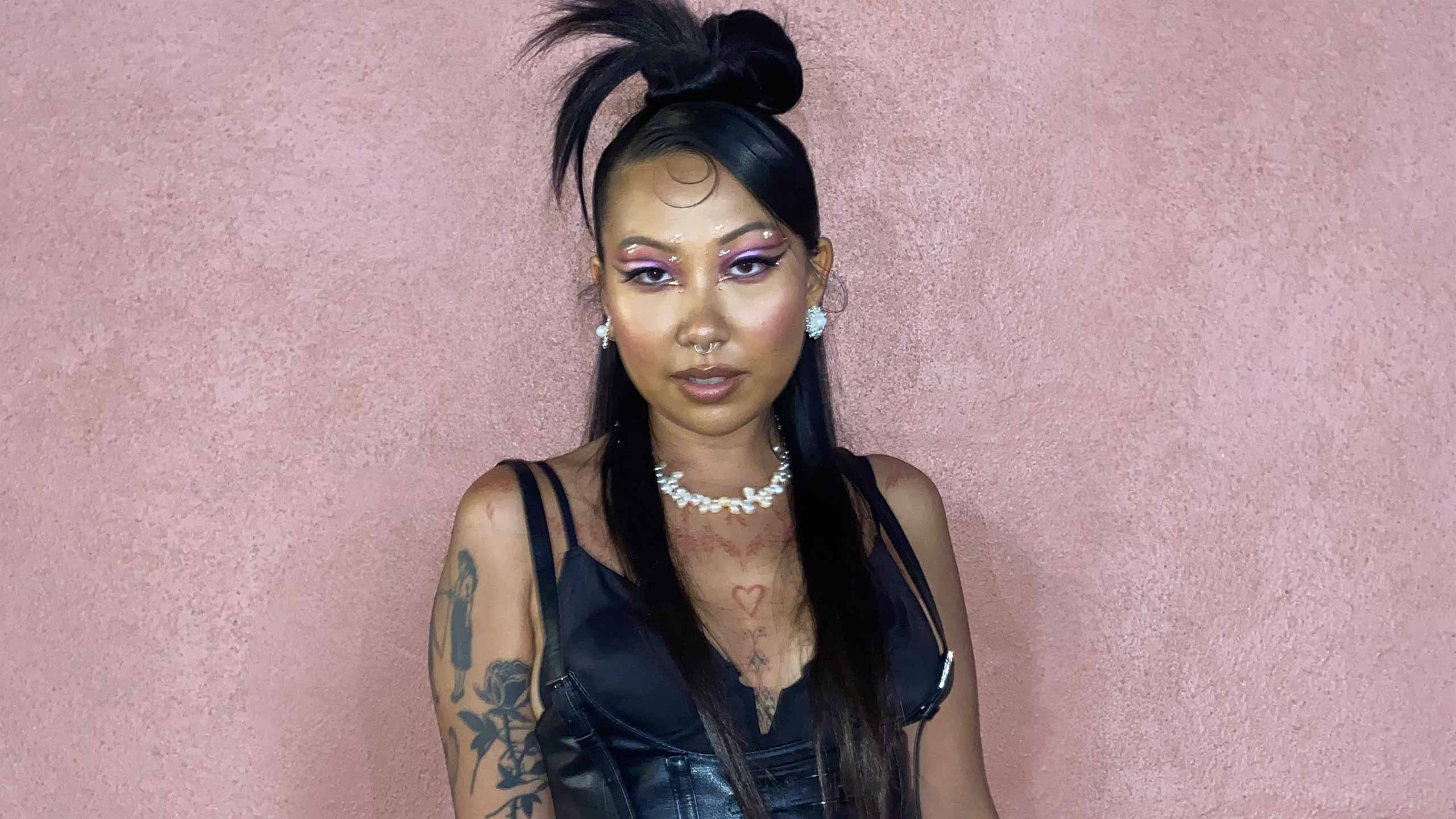
What inspired your book, Be Not Afraid of Love, in the Aesop Queer Library?
I wrote this book because for generations I have believed that love is something that we seek externally. I wanted to write this book because I am coming to understand what it means to BE embodiments of love and to allow our love to come into connectivity instead of co-dependency. Writing this book also helped me survive the internal and residual violence that was left in my somatic memory after an abusive intimate partner relationship, and remember the love that exists within me. How does your writing seek to broaden understanding and empathy?
My most sincere intention in my writing is for it to feel heart-opening for my readers. I want them to be able to see a vastness within themselves that they can hold space for. I often write about the messy and uncomfortable emotions that we are often taught to avoid, and I encourage readers to challenge the notion of escaping our discomfort and instead feeling with compassion. When harnessing self-compassion, we can care for ourselves while deeply understanding the nature of our emotions and the origins of our pain. Instead of completely avoiding feeling negative emotions, what would it look like if we held and loved ourselves while feeling them? I can only teach this lesson because I have learned it the hard way myself.
Why do you think the arts are such an important cornerstone for the queer community?
The very nature of being queer is creativity, and the arts only allow us to further explore that energy and generate it into something tangible and palpable, to be passed down through many generations, for when we become the queer ancestors ourselves.
Further reading
Explore more LGBTQIA+ reads, author interviews, a Pride playlist and details of Aesop Queer Libraries across the globe.